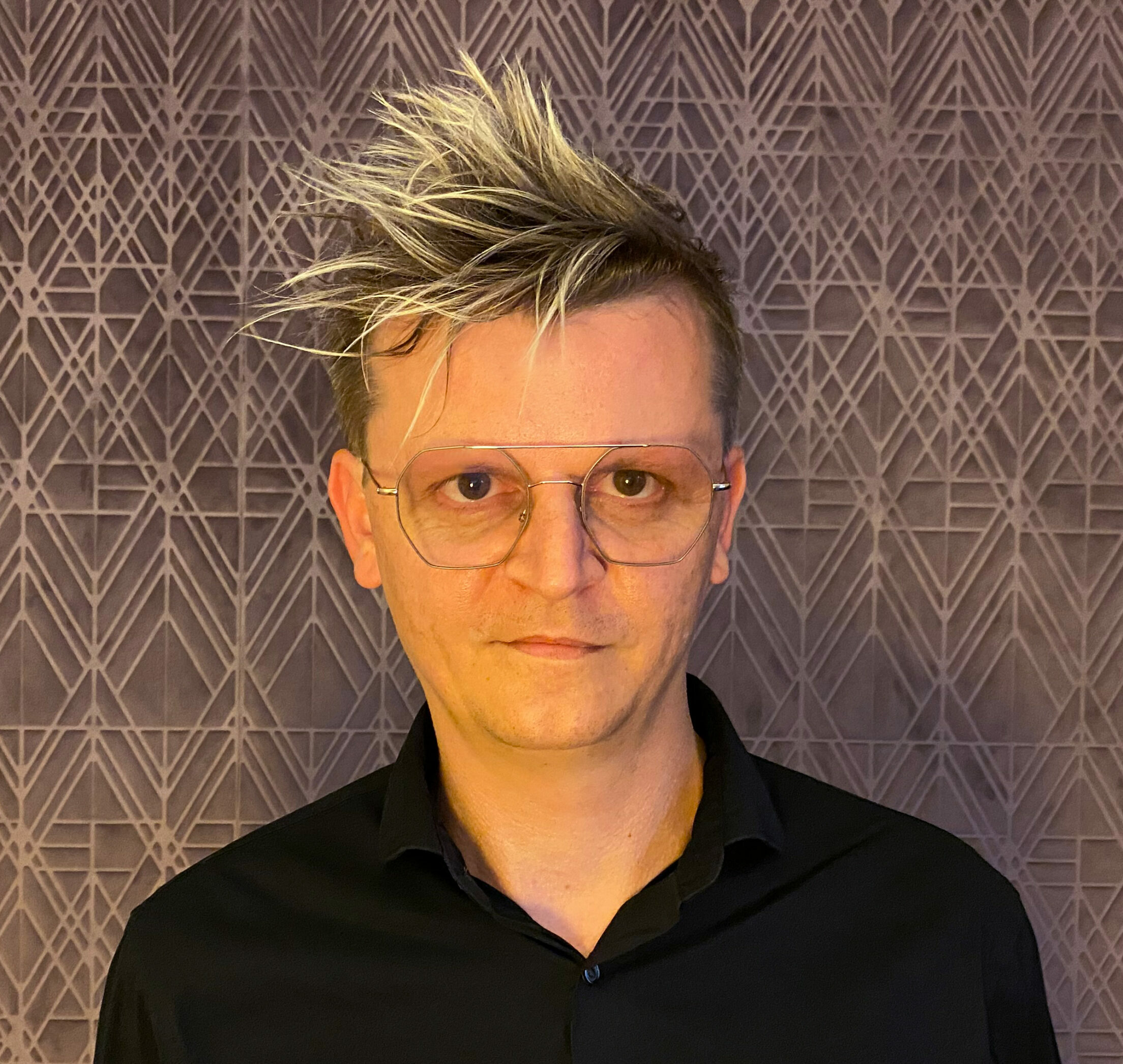
We sat down with Ivo Christow, Head of Design at Krucker Partner AG and a member of the Management Board; an Interior Architecture Firm that specializes in Hotel and Gastronomy design, to talk about the challenges of a career in the hospitality industry, influences, and passions.
Could you tell us a little about your professional journey? Where are you from and when did you discover that you wanted to work in design?
I grew up in a Housing Estate in East Germany. As children, we didn’t have much to play with, so we were forced to be creative. My favourite thing to do was to build small huts in the forest with my friends, which we then furnished in our own way. Maybe this was the starting point of my professional career. I was already an art lover as a child and loved to paint, but I only came to design much later.
When I moved with my family from Leipzig to Munich in 1986, I got to know a completely new world, full of compulsive consumerism and pressure to perform. A world in which you had to learn to assert yourself and prove yourself, or you were left behind. As a teenager, I always dreamed of having my own cool bar and later running a small hotel – to be honest, I still dream of that today. But instead of going to hotel management school, I preferred to study interior design. After graduating, I realized relatively quickly that classic interior design wasn’t enough for me, everything was far too stiff and too oriented toward standards. So I decided to start a second-degree course, which took me to Switzerland in 2003, to Zurich to be precise, because there was a completely new course on offer.
Scenography is a mixture of architecture, interior design, and stage design. It was a kind of fusion of different disciplines, dealing with staging in urban, theatrical, and museum spaces. I was then lucky enough to be able to work in one of the most renowned scenography offices directly after my studies and gain valuable experience. After spending a few years there, I embarked on the path of self-employment, alongside various other stations. In 2018, I received an offer from Krucker Partner to take on a leading role in design and operations, which I gratefully accepted. I’m back in interior design and even if I don’t own a bar or hotel, at least I get to furnish them. The only difference is that I now incorporate scenography and storytelling into interior design.
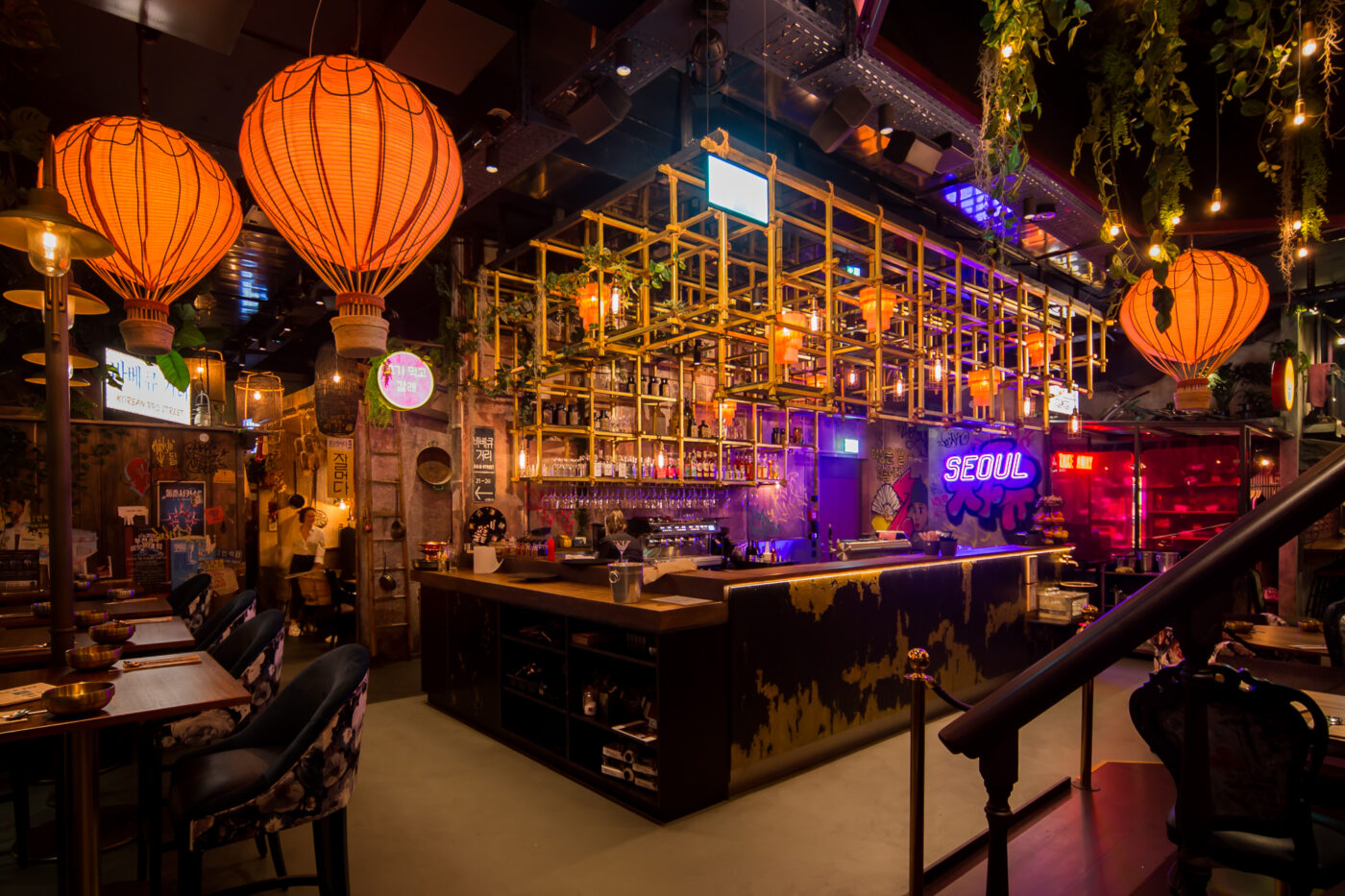
Miss Miu, Zug, Switzerland. LIV Award Winner in Interior Design – Restaurant Theme
What is your main priority when starting projects? Is there something that is fundamental to your practice- your philosophy and your process?
This varies greatly from project to project and especially from client to client. I think the most important thing is to understand the clients and exceed their needs or expectations. Many of my clients have understood the importance of offering the guest an experience, and that includes interior design. Instagramability has long become a “must” and one of the best and cheapest ways to advertise. What started with food bloggers continues today in interior design. A well-staged location has become as important today. This works best with storytelling.
When I start a project and have captured ideas and needs from the client, I start writing a story. This can be completely fictional or have references to the location or people. I write a kind of scripts like a film, where 3 factors play an important role: place, time and person. The place describes where I am, for example in which country, which city, at someone’s home, or in a factory. The time tells me when the whole thing took place, so it is current, 20 years ago or a whole century ago. This all has an influence on the design of the space. The third factor is the person, to give the room the necessary personality. The more precisely and excitingly such a script is written, the more suitable it is as a basis for the design of the space.
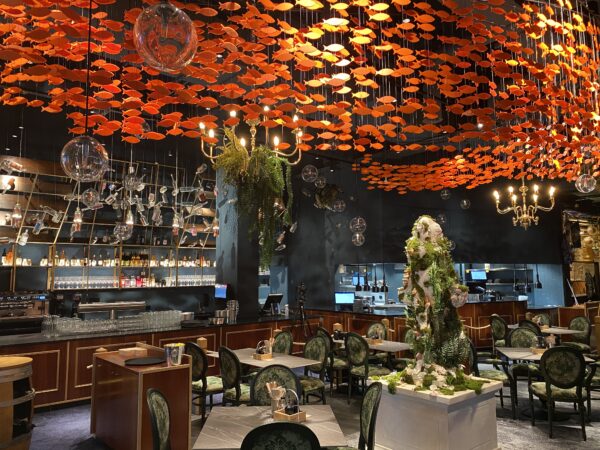
Nooch, Westside, Bern, Switzerland.
If you had to choose just one of your projects at Krucker Partner, which project would it be and why?
Always the next one. Because honestly, when a project is finished, no matter how great it turned out and how much praise you get, I always only see the little mistakes and what you could have done better. And so for every project, I make a resolution to myself, “You’ll do better next time”. However, I am very satisfied with the projects and I don’t want to single out one that is particularly important to me or that I particularly like, because, in the end, each project stands on its own. Each had different conditions and different challenges and above all, a different budget.
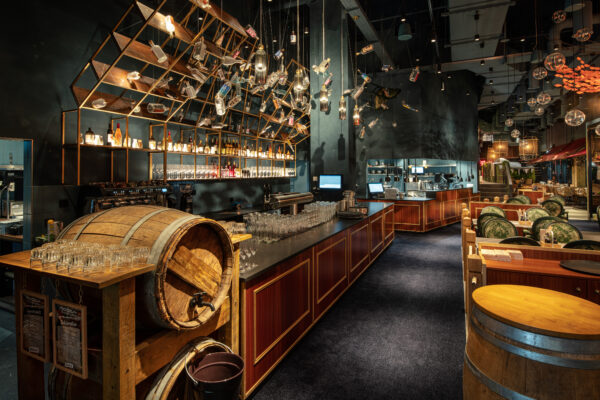
Nooch, Westside, Bern, Switzerland.
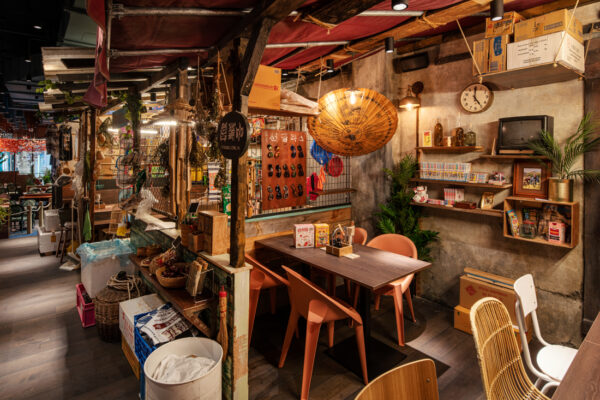
Nooch, Westside, Bern, Switzerland.
What do you feel is the most challenging part of working in Hospitality Design today?
Hospitality design is a wonderful field, more versatile than almost any other field in interior design. And the challenges are just as varied. We live in difficult times. Corona, War and Climate change have not been and are not exactly conducive to the hospitality industry. In the current situation, we are faced with many challenges. Be it delivery times or rising prices, the most important thing is to be proactive and remain flexible. We certainly have to learn to rethink our methods in many areas.
Which interior designer most influences your work or your work habits?
My attitude is never to be influenced by anyone else and, to be honest, I don’t know that many interior designers. I have always gone my own way. You are influenced by so many people and experiences throughout your life, which makes you who you are and I am quite happy the way I am. On my path through life, I have met many exciting people, both professionally and privately, who have shaped and influenced me.
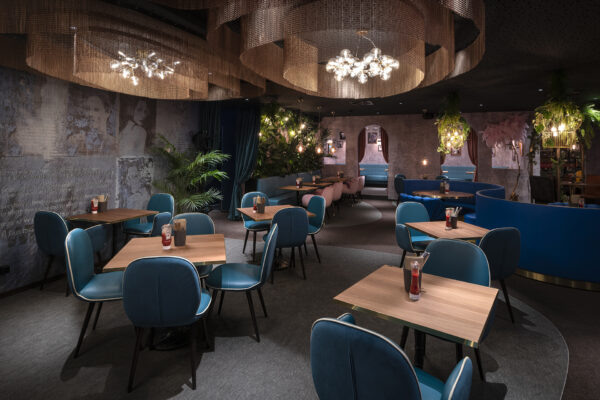
The Butcher, Dietlikon, Switzerland.
Last, what are your passions outside of the design world?
Basically, I am interested in many things, but my professional life has had a big influence on my private life. I love to travel and try out as many hotels and restaurants as possible. This has even developed into a real tic. It can happen that I stay in 5-6 different hotels on a seven-day trip, but my greatest passion in life is certainly my wife.